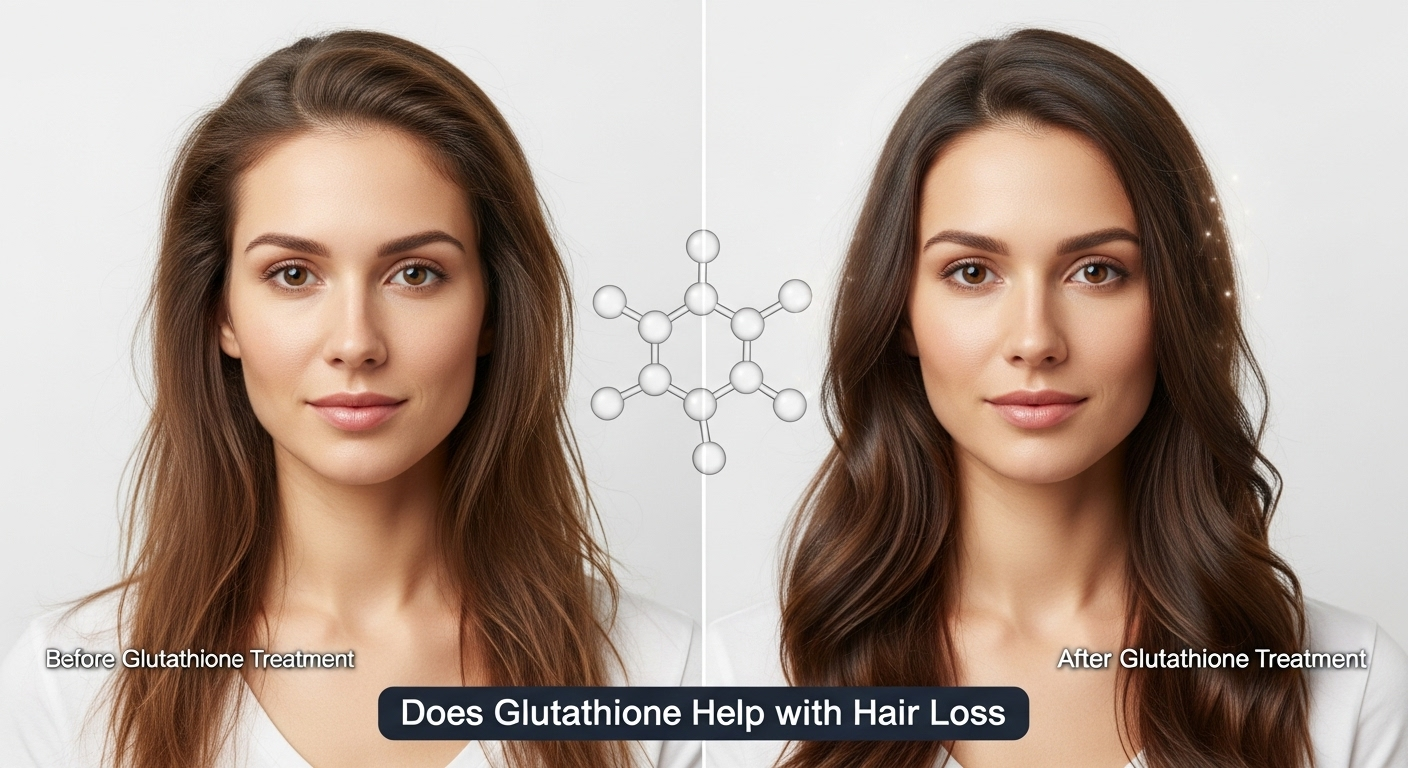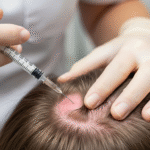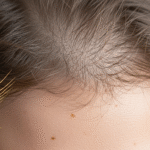Hair loss is a concern that affects millions of people worldwide, leading them to search for effective solutions. One compound gaining attention in the hair loss treatment world is glutathione. This powerful antioxidant has been linked to various health benefits, including its potential to promote healthy hair growth. But, Does Glutathione Help with Hair Loss? …
Hair loss is a concern that affects millions of people worldwide, leading them to search for effective solutions. One compound gaining attention in the hair loss treatment world is glutathione.
This powerful antioxidant has been linked to various health benefits, including its potential to promote healthy hair growth. But, Does Glutathione Help with Hair Loss? In this article, we explore the science behind glutathione and its role in hair health, offering insights into how it can potentially aid in fighting hair loss.
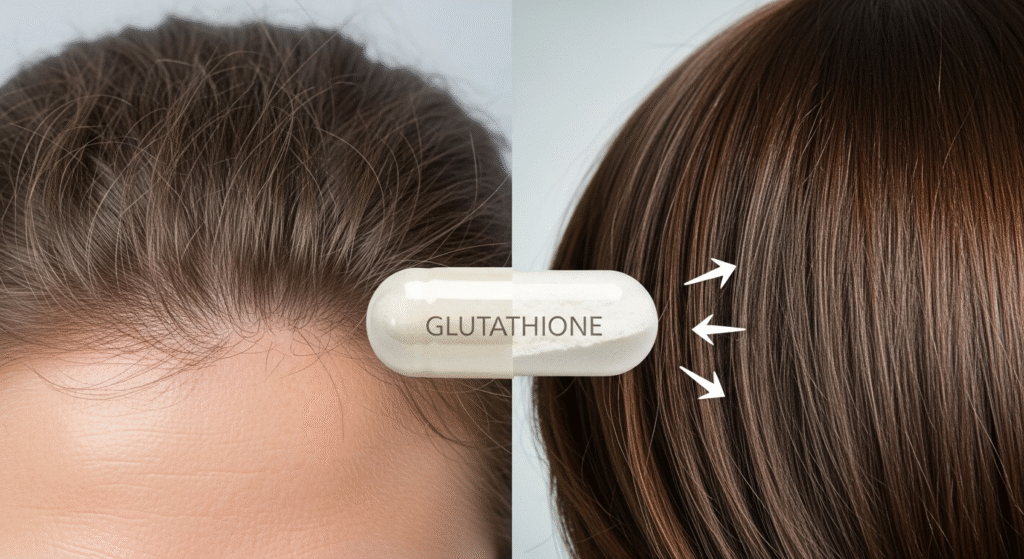
What is Glutathione and How Does It Work?
The Role of Glutathione in the Body
Glutathione is often referred to as the “master antioxidant” because of its crucial role in protecting the body’s cells from damage caused by oxidative stress. It is a small protein made up of three amino acids: glutamine, cysteine, and glycine. In the body, glutathione helps neutralize harmful free radicals, which are unstable molecules that can cause cell damage.
In addition to its antioxidant properties, glutathione plays a key role in detoxifying the body, supporting the immune system, and maintaining the health of various organs. By preventing cellular damage and supporting overall bodily functions, glutathione contributes to better overall health and well-being.
Connection Between Glutathione and Hair Health
Hair health is often an indicator of overall well-being. When the body experiences oxidative stress or a glutathione deficiency, it can negatively affect hair follicles, leading to hair thinning or hair loss. Glutathione’s powerful antioxidant properties can help combat this stress, promoting a healthier scalp and potentially supporting hair growth.
Studies have shown that glutathione can help reduce the buildup of free radicals, which may otherwise damage hair follicles and disrupt the natural hair growth cycle. This antioxidant might help restore a healthy environment for hair follicles to grow more efficiently.
Can Glutathione Help with Hair Loss?
Scientific Evidence Behind Glutathione for Hair Loss
While the science behind glutathione’s role in hair health is still evolving, several studies suggest that it may have a positive effect. Research indicates that oxidative stress plays a major role in hair loss conditions like alopecia areata, male pattern baldness, and female pattern hair loss. By neutralizing free radicals, glutathione helps reduce oxidative stress and its negative impact on hair follicles.
A study published in the Journal of Investigative Dermatology demonstrated that antioxidants like glutathione are vital for maintaining healthy hair follicles. The research shows that the antioxidant properties of glutathione may prevent hair follicles from entering the shedding phase prematurely, thus supporting hair retention and growth.
Glutathione Deficiency and Hair Loss
Glutathione deficiency can lead to weakened immunity and increased oxidative stress in the body. This imbalance can disrupt the natural growth cycle of hair, potentially causing hair loss or thinning. By restoring glutathione levels, either through diet or supplementation, you can mitigate some of the damage caused by oxidative stress, which may help in reducing hair loss.
How to Use Glutathione for Hair Health
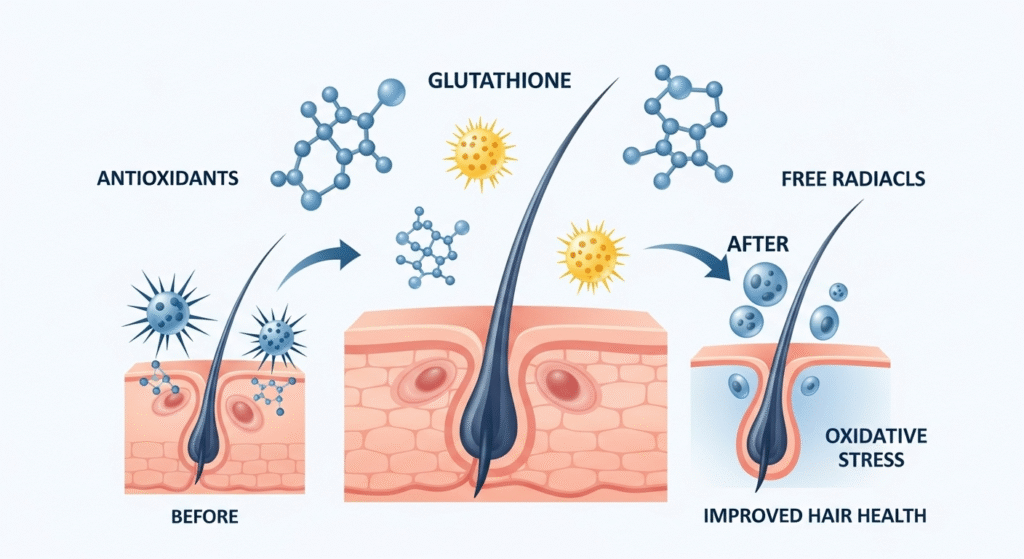
Oral Supplements vs. Topical Treatments
There are two primary ways to use glutathione for hair health: oral supplements and topical treatments.
- Oral Supplements: These are the most common method for boosting glutathione levels. Taking glutathione orally in the form of capsules or tablets can support the body’s natural antioxidant systems. However, some studies suggest that oral glutathione may not be as effective due to poor absorption in the digestive tract.
- Topical Treatments: Some hair care products now include glutathione as an ingredient, aiming to directly deliver the antioxidant to the scalp and hair follicles. While the efficacy of topical treatments is still being studied, they provide a targeted approach to improve hair health.
Does Glutathione Help with Hair Loss? Recommended Dosage and Safety
When taking glutathione supplements, the recommended dosage typically ranges from 250 to 500 mg per day, depending on individual health needs. It’s important to consult a healthcare professional before starting any new supplement regimen, especially if you have underlying health conditions.
Topical glutathione treatments can be applied directly to the scalp. However, it’s essential to perform a patch test first to ensure no allergic reaction.
The Best Sources of Glutathione for Healthy Hair
Natural Foods That Boost Glutathione Levels
Certain foods can naturally enhance glutathione levels in the body. These include:
- Garlic: Contains sulfur, which helps to boost glutathione production.
- Cruciferous Vegetables: Broccoli, Brussels sprouts, and cauliflower are rich in compounds that increase glutathione levels.
- Vitamin C-rich Foods: Citrus fruits, berries, and bell peppers help regenerate glutathione in the body.
- Turmeric: Contains curcumin, a compound known to support glutathione production.
Glutathione Supplements: What to Look For
When choosing a glutathione supplement, look for high-quality products that contain liposomal glutathione, which is better absorbed by the body. It’s also important to select supplements that are free from harmful additives or preservatives.
Expert Opinions on Glutathione and Hair Loss
Success Stories and Testimonials
Several individuals have shared positive experiences after using glutathione supplements or topical treatments. While results vary, many report noticing healthier hair, reduced shedding, and an overall improvement in hair texture and volume after consistent use of glutathione.
FAQs
Can Glutathione Cause Hair to Grow Back?
While glutathione can help improve the health of hair follicles, it is unlikely to cause immediate hair regrowth. However, consistent use may prevent further hair loss and promote healthier hair growth in the long term.
Is Glutathione Safe for All Hair Types?
Yes, glutathione is generally safe for all hair types. However, those with sensitive skin should perform a patch test before using topical treatments.
How Long Does It Take for Glutathione to Work on Hair?
The timeline for results varies depending on individual factors. Typically, it may take 3 to 6 months of consistent glutathione supplementation or topical use to see noticeable improvements in hair health.
Are There Any Side Effects of Glutathione for Hair?
Glutathione is generally considered safe, but some people may experience mild side effects such as headaches or digestive discomfort. Always consult a healthcare provider before starting supplementation.
Conclusion: Should You Try Glutathione for Hair Loss?
Glutathione is an antioxidant with significant potential benefits for overall health and hair care.
While scientific research on its direct role in treating hair loss is still ongoing, there’s enough evidence to suggest that it can be helpful in reducing oxidative stress, improving scalp health, and supporting hair follicles.
If you’re experiencing hair loss, glutathione could be worth considering as part of a comprehensive treatment plan.
Ready To Take Your Next Step
If you’re ready to take control of your hair health and explore glutathione treatments, book a consultation with Dr. Uzma Irfan, an ISHRS-certified surgeon in Islamabad today to discuss your personalized hair restoration plan.

